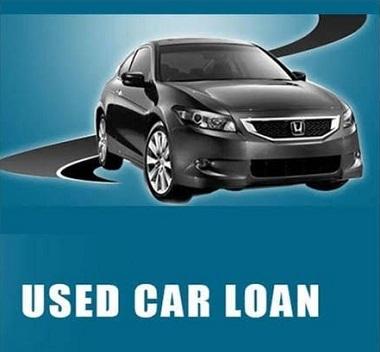US Used Car Loans Market to Grow with a Double Digit CAGR until 2026: TechSci Research

Rising disposable income is driving the growth of the United States Used Car Loans Market, in the forecast period.
According to TechSci report on, “United States Used Car Loans Market By Vehicle Type (Hatchback, Sedans, SUVs) By Financier (OEM, Banks, NBFCs) By Percentage of Amount Sanctioned (Up to 25%, 25-50%, 51-75%, Above 75%) By Tenure (Less than 3 years, 3-5 years) By Region, Competition Forecast & Opportunities, 2026”, United States used car loans market has shown promising growth in historical years until 2019 and is expected to continue its growth in upcoming forecast years 2021 to 2026. The United States used car loans market owes its growth to the factors like a surge in the demand for the used car ownerships. Moreover, the rising disposable income among the young population and the changing standards of the lifestyle is anticipated to hold the market growth toward a consistent growth in the upcoming years. Furthermore, the government is extending aids and financing bodies are coming up with viable and affordable schemes and loan plans that are easier to repay and have low-interest rates thereby supporting the growth of the United States used car loans market in the next five years.
Used car loans are the financial aids and support that financing bodies provide the expectant consumers on certain interest rates. These sanctioned loans are specifically for the used cars, owning to the fact that used cars have lower durability, viability, and other related factors that are considered. Prices of the used cars are lower than the original models and therefore often are charged with lesser interest rates comparatively.
The United States used car loans market is segmented by vehicle type, financiers, percentage of amount sanctioned, tenure, competitional landscape, and regional distribution. Based on the percentage of amount sanctioned, the market is further segmented into up to 25%, 25-50%, 51-75%, above 75%. For the used cars, the financing bodies often provides loan based on the age of the car, conditions, and viability of the vehicle, etc. Keeping these factors in mind, the financing bodies decide the amount of percentage of the price that can be loaned to a consumer to buy the car. In most cases, getting up to 25% of loans sanctioned for the purchase is quite easy. Therefore, based on a percentage of the amount sanctioned, up to 25% of the total amount is more viable, and is expected to hold the largest market shares in the upcoming five years. 25-50% range also hold significant revenue shares of the market segment. Although, getting a loan paying more than 75% of the total cost is often impossible or requires very special cases. Although, consumers like government officials and families of the martyrs of the country may avail themselves of the privileges.
Based on vehicle type, the market is further bifurcated into hatchback, sedans, and SUVs. Hatchbacks are anticipated to hold the largest revenue shares of the market and assert their dominance over the market in the upcoming five years. The market growth can be attributed to the surge in the demand for mid-sized cars. Also, the insurance costs and depreciation costs for hatchback cars are lower, and thus the market segment sees impressive growth in the next five years. SUVs are also anticipated to hold significant shares of the market segment due to the increasing demand for luxurious cars and their affordability as a used car.
Holding the largest shares of the United States used car loans market, a partial list of the major market player includes ICICI Bank, Ally Financial Inc., The Bank of America Corporation, Capital One Financial Corporation, The Ford Motor Company, General Motors Financial Company, Inc., JPMorgan Chase & Co., American Honda Finance Corporation, Pentagon Federal Credit Union, Toyota Motor Credit Corporation, among others. The presence of multiple organized market players has created a tough market scenario for the new market players. Also, automobile manufacturers offer their financing services, or they have certain tie-ups with the banks, or NBFCs, to offer wider options for the consumers. Though the process of sanctioning the used car loan from the NBFCs is way more feasible for the consumers as compared to the financing solutions from the automobile manufacturers.
“The United States is the most penetrated market in the North American region. Due to the presence of the high number of the market players in the country the market players are highly competitive as well as are consistently involved in the feasible and affordable loan schemes for the consumers. With the increasing number of cheap interest rates and better schemes with delayed time for the loan return, the market players are satisfying the consumers with accessibility of car within their pocket range. New market players can focus on the better schemes to establish themselves in the market in the upcoming five years of the future market,” said Mr. Karan Chechi, Research Director with TechSci Research, a research-based global management consulting firm.
“United States Used Car Loans Market By Vehicle Type (Hatchback, Sedans, SUVs) By Financier (OEM, Banks, NBFCs) By Percentage of Amount Sanctioned (Up to 25%, 25-50%, 51-75%, Above 75%) By Tenure (Less than 3 years, 3-5 years) By Region, Competition Forecast & Opportunities, 2026” has evaluated the future growth potential of United States Used Car Loans market and provides statistics & information on market size, structure and future market growth. The report intends to provide cutting-edge market intelligence and help decision-makers take sound investment decisions. Besides, the report also identifies and analyzes the emerging trends along with essential drivers, challenges, and opportunities in the United States Used Car Loan market.





